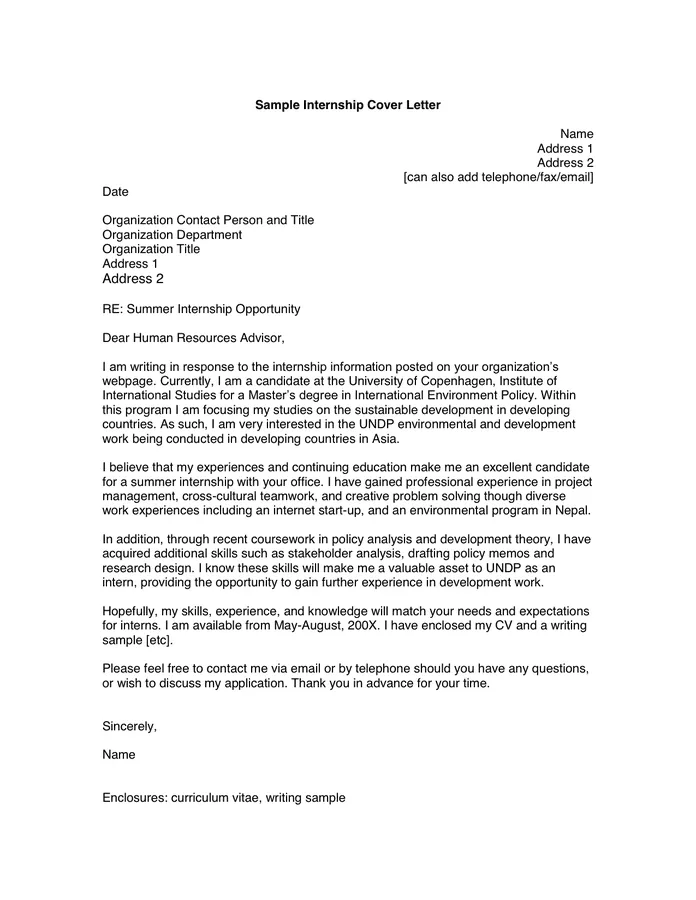Top 5 Cover Letter Tips for Student Internships
Landing a student internship is a pivotal step in shaping your career. A well-crafted cover letter is your first chance to make a lasting impression and secure that coveted opportunity. It’s not just a formality; it’s your personal introduction, a showcase of your skills, and a testament to your enthusiasm. With a competitive job market, a standout cover letter is essential. This guide provides you with the top 5 cover letter tips tailored specifically for student internships, ensuring your application stands out from the crowd. We will delve into actionable strategies designed to help you make a strong first impression and increase your chances of securing an interview. By following these tips, you will be well on your way to crafting a compelling cover letter that gets you noticed.
Highlighting Your Skills
As a student, you might lack extensive professional experience, but you likely possess a wealth of transferable skills. Your cover letter is the ideal place to showcase these skills, which can come from coursework, extracurricular activities, volunteer work, or part-time jobs. Identify the skills most relevant to the internship you are applying for, such as communication, teamwork, problem-solving, or time management. Provide specific examples of how you have utilized these skills. For instance, if you’re applying for a marketing internship, mention your experience managing social media accounts for a club or organizing promotional events. Tailor the skills you emphasize to match the requirements outlined in the internship description, ensuring your letter resonates with the employer’s needs and priorities. Consider creating a skills matrix to list your skill and relate them to your experience.
Tailoring Your Letter to the Internship
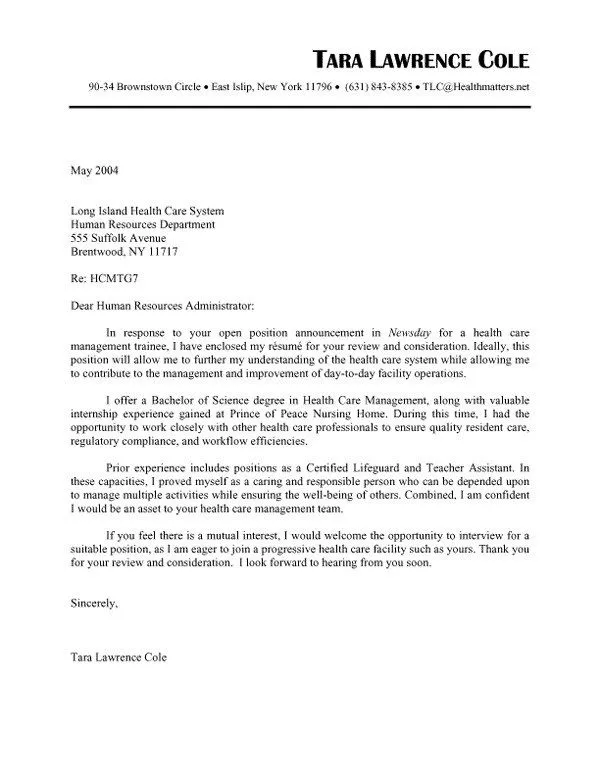
Generic cover letters are easily spotted and often disregarded. Take the time to personalize each cover letter for the specific internship. Research the company and the role thoroughly. Understand their mission, values, and recent projects. Address the letter to the hiring manager by name if possible, showing you’ve taken the initiative to learn more about the company. The body of your letter should directly address the requirements outlined in the job description. Explain how your skills and experiences align with their needs. This demonstrates your genuine interest in the opportunity and shows you’ve put in the effort to understand what the company is looking for. Mention specific aspects of the company or role that excite you, whether it’s their innovative work in a particular field or their commitment to employee development. Tailoring is a clear sign that you are genuinely interested.
Show, Don’t Just Tell
Avoid simply stating your skills; provide concrete examples that demonstrate your abilities. Instead of saying ‘I have strong communication skills,’ describe a situation where you successfully communicated a complex idea to a group. If you mention leadership skills, detail your role in leading a project or team. When you show your skills through specific examples, your claims become more credible and memorable. Use the STAR method (Situation, Task, Action, Result) to structure your examples. Start by setting the scene (Situation), describe the challenge (Task), explain the actions you took (Action), and then highlight the positive outcome (Result). This approach makes your cover letter more engaging and helps the hiring manager visualize your capabilities. By providing compelling evidence of your skills, you make a strong case for why you are the best candidate for the internship.
Formatting for Impact
The layout and format of your cover letter are just as important as its content. Use a professional and easy-to-read font like Arial or Times New Roman in a size between 11 and 12 points. Ensure your letter is well-structured with clear paragraphs, headings, and ample white space. Keep the length to one page, making it concise and focused. Use bullet points to highlight key achievements or skills, making your letter visually appealing and easier to scan. Pay attention to the overall presentation. A clean, organized cover letter reflects your attention to detail and professionalism. Proofread meticulously, and use a template that is visually appealing and aligns with the company’s culture. A well-formatted cover letter leaves a positive first impression and shows you respect the reader’s time.
Proofreading and Polishing
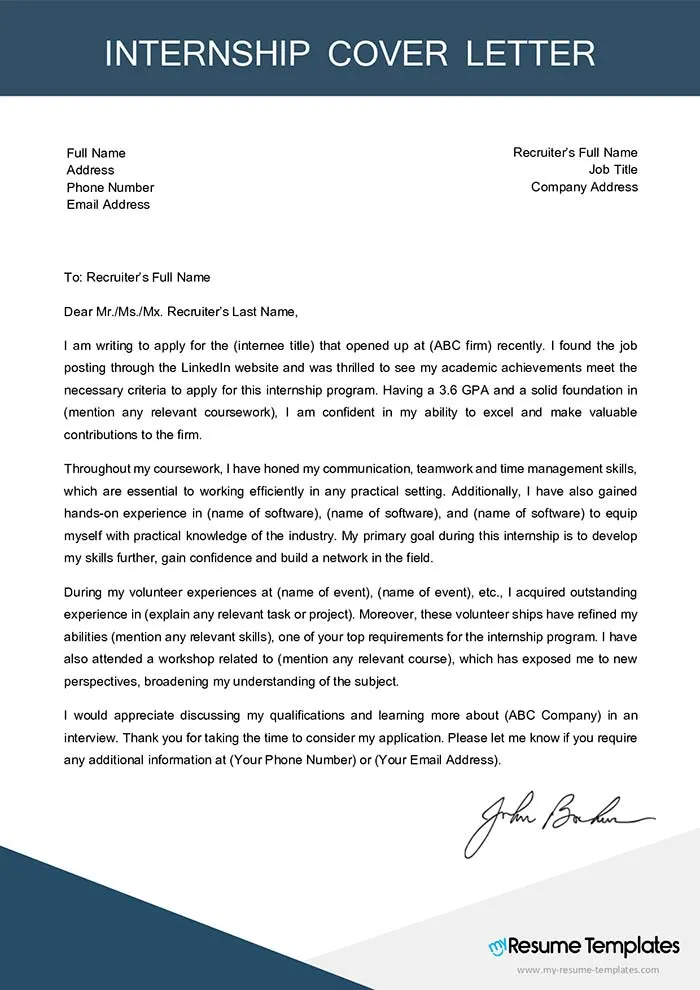
Typos, grammatical errors, and formatting inconsistencies can undermine your credibility and make you appear careless. Before submitting your cover letter, proofread it multiple times. Read it aloud to catch any awkward phrasing or errors that you might miss when reading silently. Use spell-check and grammar-check tools, but don’t rely solely on them. Ask a friend, family member, or career advisor to review your letter. Fresh eyes can often spot mistakes that you have overlooked. Ensure your contact information is accurate and up-to-date. Proofreading is not merely about correcting mistakes; it’s about refining your message and ensuring your cover letter is polished and professional. It’s a small step that can have a big impact on your application.
Examples of Strong Cover Letter Openings
The Enthusiastic Introduction
A strong opening immediately grabs the reader’s attention. Start with enthusiasm and excitement about the internship opportunity. Express your genuine interest in the company and the specific role. For example, “I am thrilled to apply for the Marketing Intern position at [Company Name], as advertised on [Platform]. Your company’s innovative approach to [Industry] deeply resonates with my passion for…” This type of opening sets a positive tone and immediately communicates your enthusiasm. It shows that you’ve done your research and are genuinely excited about the opportunity. It demonstrates your eagerness to contribute and learn.
The Skill-Focused Opening
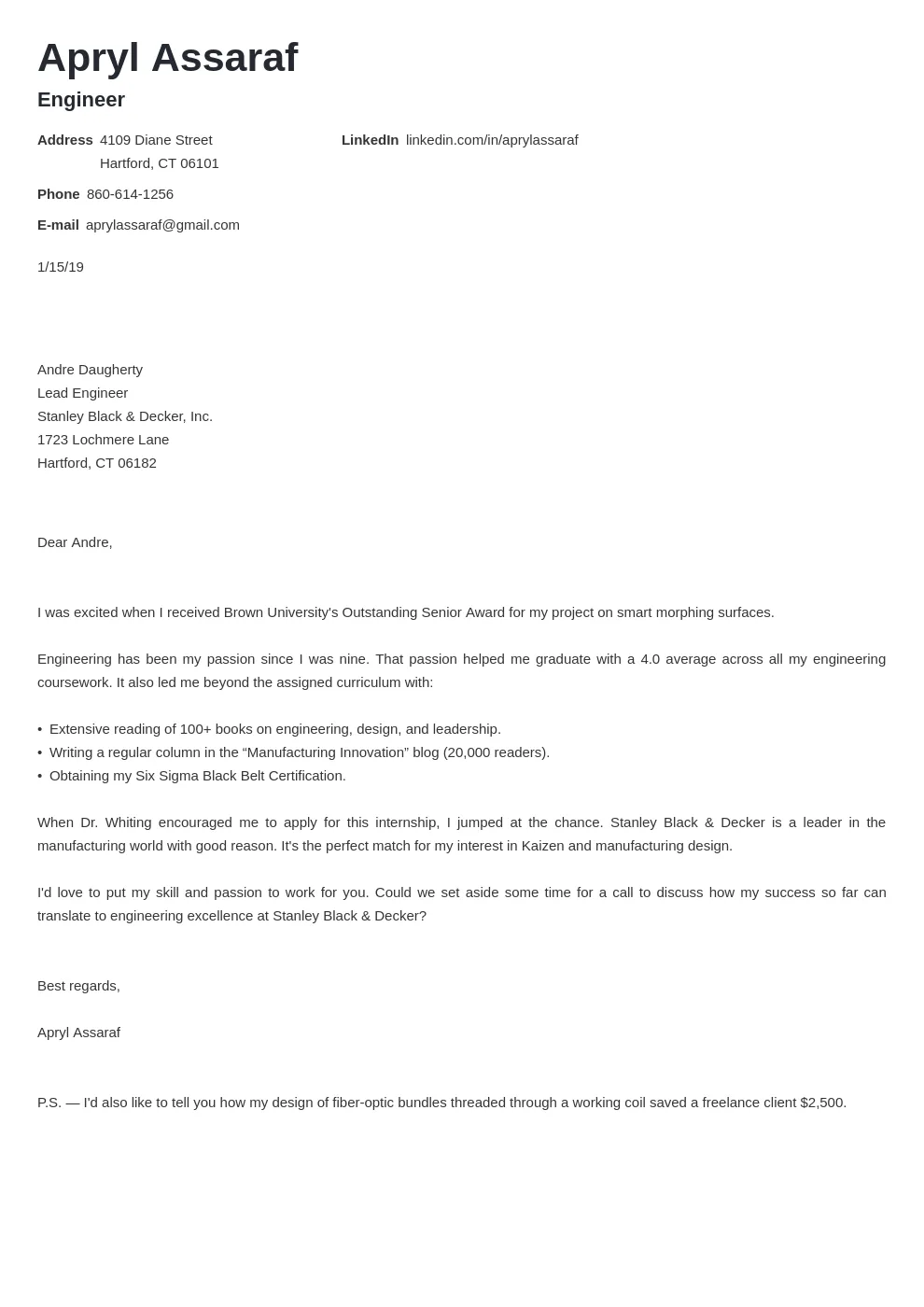
If the job description highlights specific skills, consider opening your letter by mentioning your relevant skills. Briefly state a key skill and how it relates to the role. For instance, “As a highly organized and detail-oriented student, I am eager to apply for the Project Management Intern position at [Company Name]. My experience in [Relevant Experience] has equipped me with the skills to…” This opening quickly highlights your qualifications. It shows the hiring manager that you understand the requirements of the role and that you can deliver the skills needed to succeed. This approach makes your cover letter directly relevant to the internship.
The Referral-Based Start
If you were referred by someone within the company, make sure to mention it in your opening. A referral can significantly increase your chances of getting noticed. For example, “I am writing to express my interest in the Software Engineering Intern position at [Company Name], as recommended by [Referral’s Name]. [Referral’s Name] shared that [Company Name] is known for [Company’s quality] which aligns with my career aspirations…” This opening immediately establishes a connection and provides credibility. It shows that someone within the company trusts and recommends you. The referral can open doors and make your cover letter stand out.
Common Mistakes to Avoid
Generic Language and Lack of Personalization
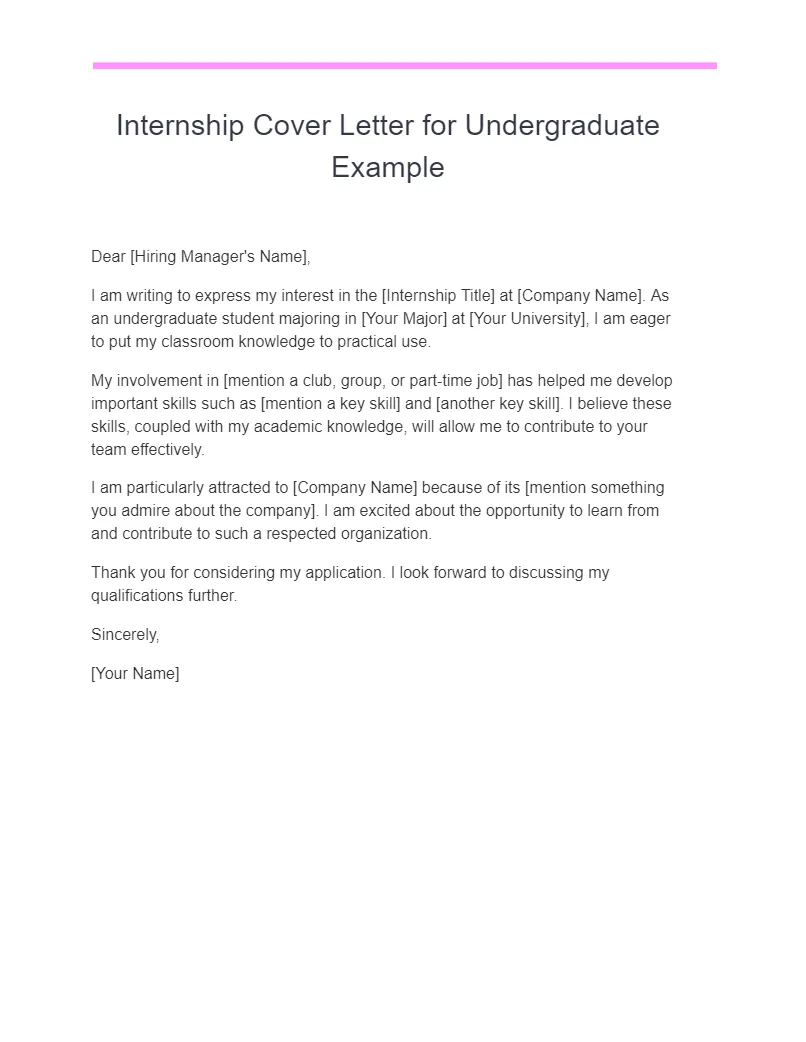
One of the biggest mistakes is using generic language that could apply to any job. Avoid phrases like, ‘I am a hard worker,’ or ‘I am a team player’ without providing specific examples. Your cover letter should be tailored to each internship. If you send out a generic letter to multiple companies, you will likely not receive a response. Research each company and the role before writing your cover letter. Use the company’s name and show genuine interest in their specific work and values. Show you’ve taken the time to understand the internship and what is required. A personalized cover letter that aligns with the internship’s needs will make a much stronger impression.
Typos and Grammatical Errors
Typos and grammatical errors are a major turn-off for hiring managers. These mistakes can signal a lack of attention to detail and professionalism. Always proofread your cover letter carefully before submitting it. Use spell-check and grammar-check tools, but don’t rely on them entirely. Read your cover letter aloud, and ask someone else to review it. Ensure that your sentences are clear, concise, and error-free. Mistakes can make you look unprofessional, regardless of your qualifications. A polished cover letter shows that you value the opportunity and are committed to presenting yourself in the best possible light. A well-proofread letter significantly increases your chances of making a positive first impression.
Focusing Solely on Yourself
While your cover letter is about you, the focus should be on how you can contribute to the company. Avoid writing a cover letter that is solely about your needs and aspirations. Instead, demonstrate your interest by showing how you can help the company meet its goals. Mention the company’s objectives and demonstrate your awareness of their values. Tailor your skills to demonstrate how you would benefit the employer. Explain how you would use your skills and experiences to solve problems and achieve results. Focus on what you can bring to the table and how your contributions will benefit the team. This approach shows that you are thinking beyond yourself and are eager to become a valuable member of the team. Focusing on what you can do for the employer rather than just on yourself makes your cover letter much more compelling.
Showcasing Your Achievements
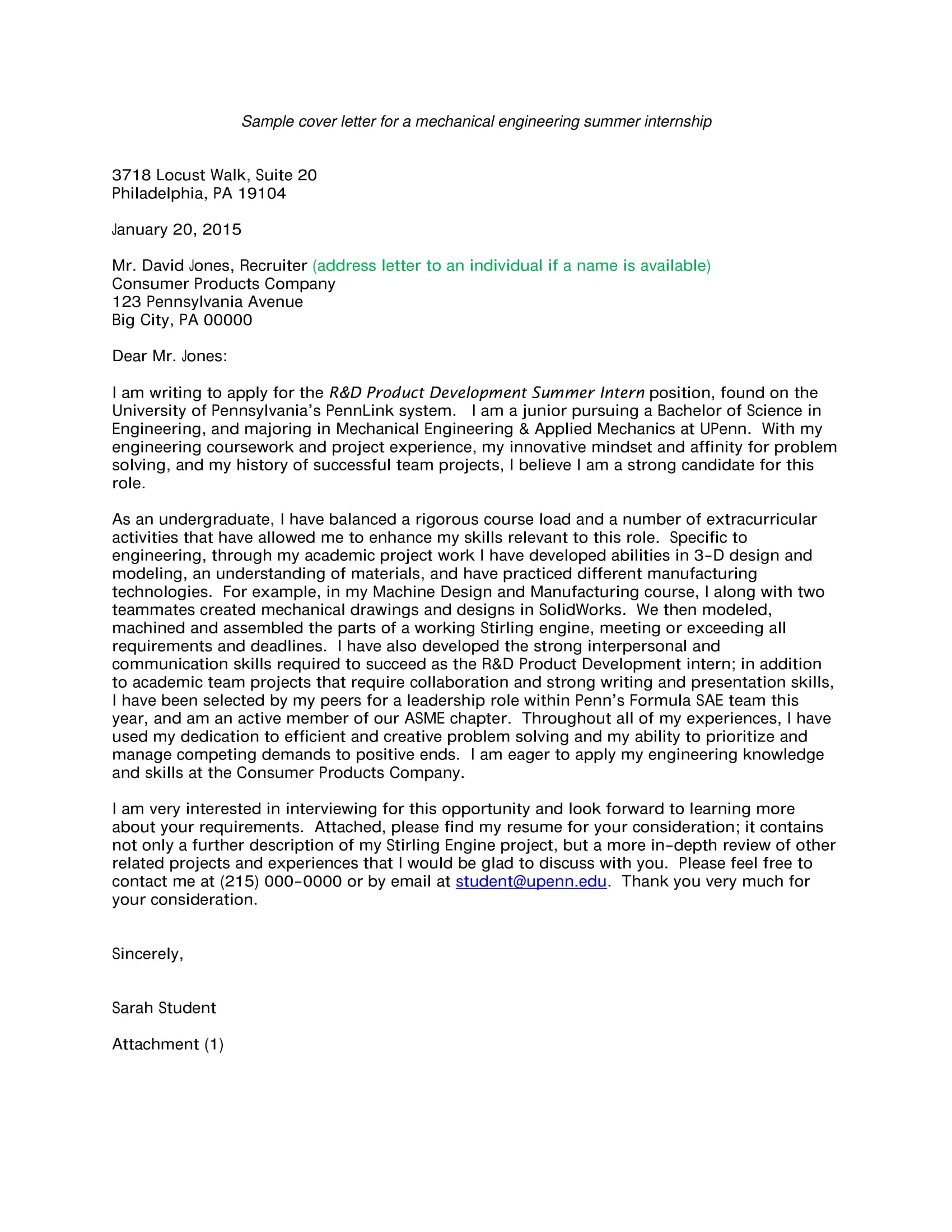
Highlighting your achievements is an effective way to demonstrate your skills and qualifications. Focus on specific accomplishments rather than just listing your responsibilities. Use the STAR method (Situation, Task, Action, Result) to provide context and showcase the impact of your work. Mention any awards, honors, or special recognition you have received. These details give a clear picture of your capabilities and successes. They provide tangible evidence of your achievements and differentiate you from other candidates. By showcasing your achievements, you demonstrate your value and highlight your potential to contribute to the company.
Quantify Your Accomplishments
Whenever possible, quantify your achievements. Use numbers and data to make your accomplishments more impactful. Instead of saying ‘Improved customer service,’ say ‘Increased customer satisfaction scores by 15%.’ Quantifiable results demonstrate your impact in a clear and concise way. Include metrics, percentages, and specific figures to support your claims. This helps hiring managers quickly assess your value and understand the results you have achieved. Quantifying your accomplishments makes your cover letter more compelling and provides concrete evidence of your skills and contributions.
Use Action Verbs
Use action verbs to start each bullet point in your cover letter. Action verbs bring your accomplishments to life and add dynamism to your letter. Examples include ‘Managed,’ ‘Developed,’ ‘Implemented,’ ‘Created,’ and ‘Led.’ These verbs show your ability to take initiative and get things done. They make your achievements more vivid and engaging. Avoid passive language and weak verbs. By using strong action verbs, you highlight your skills and create a positive impression. Using action verbs creates a more engaging and impactful cover letter that gets noticed.
Demonstrating Your Passion
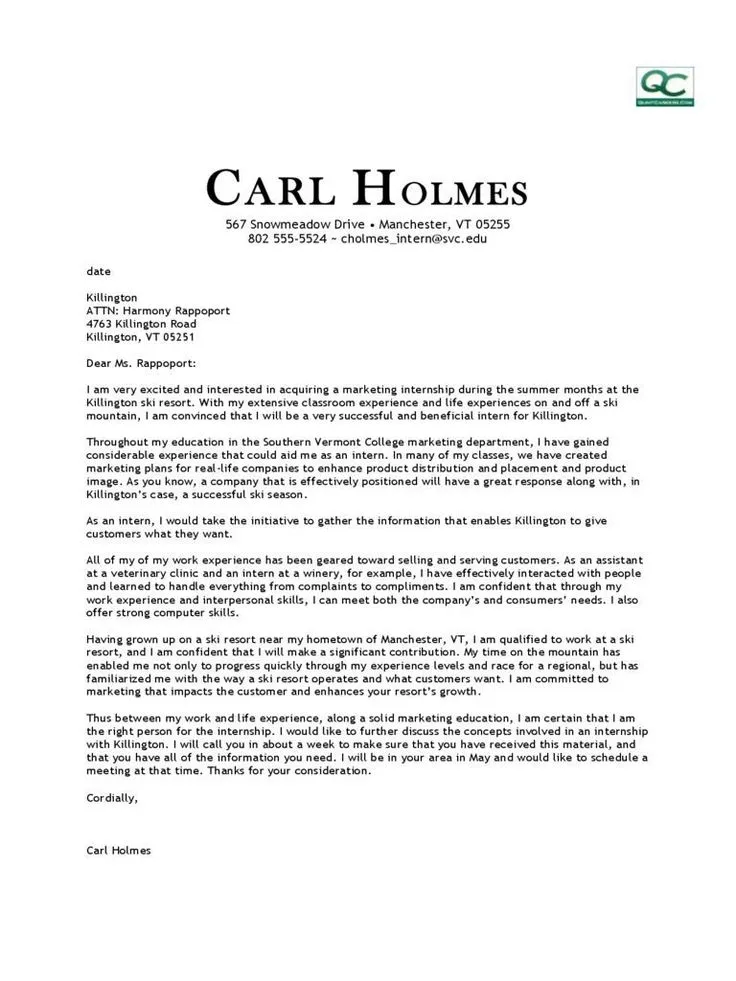
A student internship is more than just a job; it’s a chance to explore your passion and gain experience in your field. Demonstrate your enthusiasm for the opportunity throughout your cover letter. Talk about your interest in the company, the industry, and the specific role. Explain why this internship is a good fit for your career goals. Mention any projects or experiences that demonstrate your passion. Share why you want to work for the company and how you can bring value to them. Genuine passion can make a difference. Demonstrating your passion for the opportunity makes your cover letter more engaging and creates a positive impression. It shows you are eager to learn and contribute.
